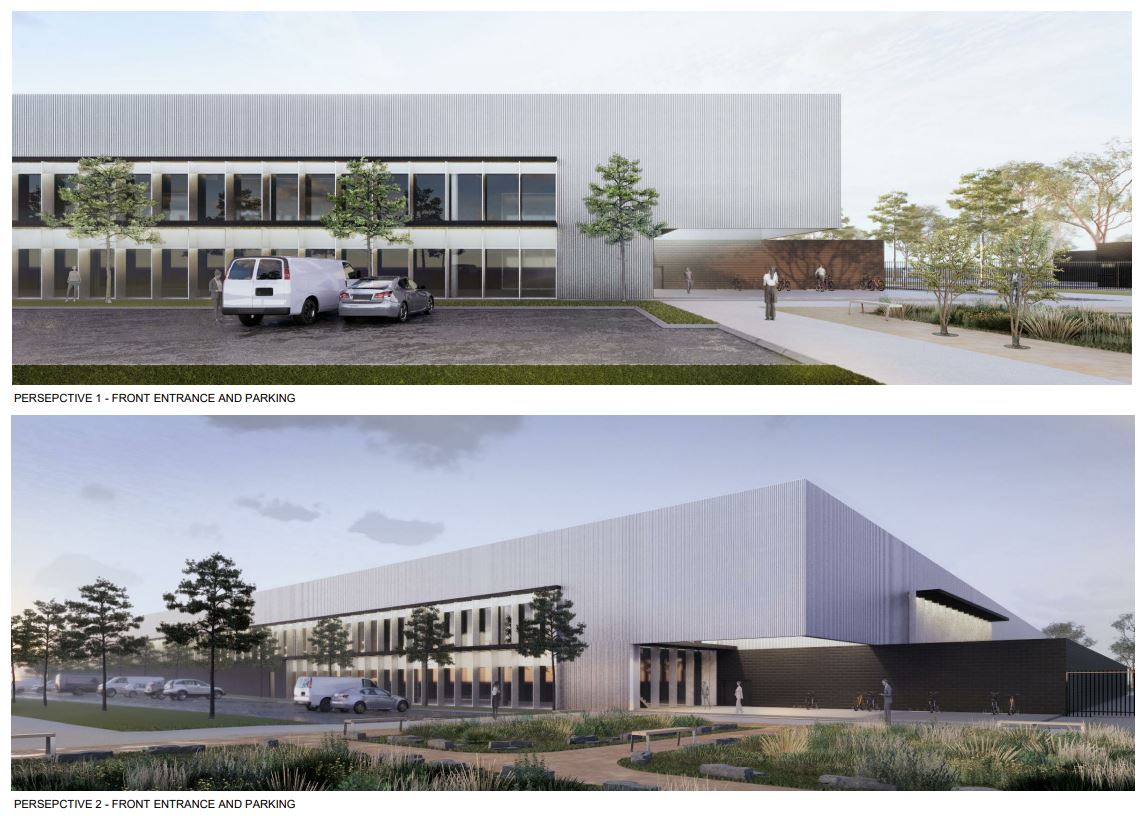From pv magazine Global | via the Hydrogen Stream
Construction of Australia’s Green Energy Manufacturing (GEM) Centre started yesterday in Gladstone, Queensland, according to the Fortescue Future Industries green hydrogen unit of Australian iron ore producer Fortescue. The company said the site would host the world’s largest electrolyser facility. “Stage one is the AU$114 million (US$83 million) electrolyser facility, which will be expanded as current demand indications crystallise,” said Fortescue. “The GEM has several growth stages already planned into its factory footprint, which includes green manufacturing technology such as cables, batteries, wind turbines and solar panels.” The company added, the electrolyser facility will have “an initial capacity of two gigawatts per annum – more than doubling current global production and enough to produce more than 200,000 tons of green hydrogen each year.” Fortescue wants to make 15 million tons of green hydrogen per year by 2030. The first electrolysers will be manufactured at the facility in early 2023. They will be used in Queensland at the company’s planned green-hydrogen-to-ammonia project on Gibson Island.
Another project Down Under
After completing a pre-feasibility study on the Pedirka Blue Hydrogen project in Australia’s Northern Territory, Hexagon Energy Materials has said Western Australia is the area offering the company the best opportunities for clean hydrogen production, and added, the use of ammonia as a hydrogen carrier is more commercially viable than liquid hydrogen. Nearby infrastructure such as ports and CO2 storage facilities are crucial elements to make projects commercially attractive. “Locating the hydrogen plant adjacent to feedstock supply is also critical to minimising raw material logistics costs and, as a result, commercial returns,” wrote Hexagon yesterday. “Low cost access to local process water supply and infrastructure impacts commercial returns.” The Australian company will announce more details of its hydrogen project in Western Australian in the coming week.
A research team in South Korea has synthesised metal nanoparticles it says can “drastically” improve the performance of hydrogen fuel cell catalysts. The Korea Institute of Science and Technology (KIST) team synthesised nanoparticles by a physical method, rather than chemical reactions. The researchers used sputtering, a thin-metal-film deposition technology used in semiconductor manufacturing. “The KIST research team synthesised a platinum-cobalt-vanadium alloy nanoparticle catalyst using this technology and applied [it] for the oxygen reduction reaction in hydrogen fuel cell electrodes,” wrote the academics in a paper published in Nano Today. “As a result, the catalyst activity was seven and three times higher than [for] platinum, and platinum-cobalt alloy catalysts that are commercially used as catalysts for hydrogen fuel cells, respectively.”
Germany is opening its second hydrogen diplomacy office in Saudi Arabia.”The offices are tasked with providing expertise as well as analyses of the local and regional impact of the transformation,” the German Foreign Ministry wrote on Sunday. “Another key part of their role is to build ties between decision-makers, experts and companies from both countries. The offices are established in cooperation with [state-owned development entity] the Deutsche Gesellschaft für Internationale Zusammenarbeit (GIZ) GmbH and supplement existing energy partnerships.”
UK-based maritime classification society Lloyd’s Register has awarded approval-in-principle status to Norwegian shipping company Egil Ulvan Rederi for its zero-emission, self-discharging hydrogen-fuelled bulk carrier, With Orca. “The vessel is planned to enter into a long-term transport contract with cargo owners Felleskjøpet Agri and Heidelberg Cement,” Lloyd’s wrote today. The vessel will be powered by hydrogen, stored onboard in compressed form. “It will also have a fuel cell system for energy production in low load conditions,” said Lloyd’s. “A significant part of the energy required to operate the 88m/5,500 ton vessel will be harvested directly from the wind through two large rotor sails.” The craft, which is scheduled to enter operation in early 2024, will be able to store excess energy in batteries.
The International Council on Clean Transportation (ICCT) has said renewable electrolysis needs policy and financial support to become economically viable. In the white paper published last week, the ICCT focused on the cost of renewable hydrogen produced at European refuelling stations. “Even our optimistic estimate of €6/kg hydrogen is significantly higher than the 2030 target of €1.80/kg announced by the president of the European Commission,” wrote ICCT’s Yuanrong Zhou and Stephanie Searle. They said the industry could advance down the price curve 10 years with a €3/kg hydrogen subsidy. “This subsidy amount can enable cost parity, from a fuel-cost perspective, of on-site electrolysis renewable hydrogen and diesel before 2030,” wrote the authors of the white paper.
Shell Global Solutions International has awarded Houston-based engineer KBR a contract to provide professional services for hydrogen liquefaction developments. “KBR will provide technical solutions as part of concept studies to advance technology for large scale hydrogen liquefaction – an alternative method for long distance renewable energy transport,” said Shell yesterday. “Liquid Hydrogen (LH2) also provides a versatile energy solution for a wide variety of end uses including mobility, power generation, [and] industrial and domestic heat as well as molecular end-use markets.”
This content is protected by copyright and may not be reused. If you want to cooperate with us and would like to reuse some of our content, please contact: editors@pv-magazine.com.








By submitting this form you agree to pv magazine using your data for the purposes of publishing your comment.
Your personal data will only be disclosed or otherwise transmitted to third parties for the purposes of spam filtering or if this is necessary for technical maintenance of the website. Any other transfer to third parties will not take place unless this is justified on the basis of applicable data protection regulations or if pv magazine is legally obliged to do so.
You may revoke this consent at any time with effect for the future, in which case your personal data will be deleted immediately. Otherwise, your data will be deleted if pv magazine has processed your request or the purpose of data storage is fulfilled.
Further information on data privacy can be found in our Data Protection Policy.